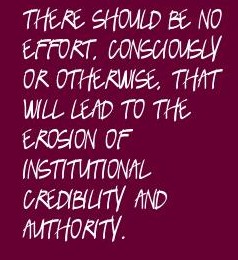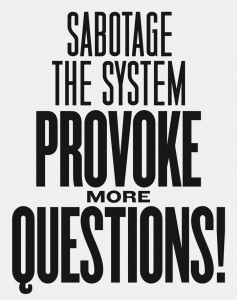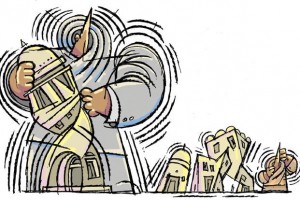November 14, 2013 – Those of us living in democracies on this planet are confronted with the clashing of two realities. The first is our laws that provide us with personal safeguards to preserve our individual freedom. The second is our technological reach through global telecommunications with our personal digital presence everywhere.
Today although there are bills and charters of rights, and personal privacy laws on the books in so many countries, it seems privacy is a thing of the past. Everything we do digitally leaves a trail of bread crumbs for those who seek the bits of data. Mobile communication has become ubiquitous. And with it so have listening posts that can gather every thread of every conversation or transaction undergone on the web.
I do all my banking online as I am sure do many of you, my readers. The banks have made significant investments to ensure that transactions of a commercial nature are secure. And we trust that what they have put in place is effective. But the emails that you and I trade, or the short messages we share over our smartphones, or the web pages we view, or the phone calls we make – all can be scrutinized by those who have the tools and training to intercept the data stream. Add to this the personal information we post about ourselves voluntarily on social media sites like Facebook, Google+ and LinkedIn and we have the makings of a treasure trove of data for those same trained data snoops with their bevy of tools.
The recent revelations about the U.S. National Security Agency’s listening in on the private conversations of heads of foreign states is a symptom of technological overreach in the post-9/11 world. Communications technology makes it possible for governments to listen in on citizens. Data storage technology makes it possible to grab zetabytes (that is kilobytes to the 7th degree) and filter it to find “the bad guys.”
In Italy, a democracy, government uses a tool called the Redditometro which tries to find income tax evaders by studying the purchasing habits of its citizens. Every swipe of a credit card, every purchased subscription, mobile phone usage, vacation spending, all are analyzed to determine who is evading taxes. Some describe this new government program as an “act of psychological terrorism.” The Italian government claims that through this program they have uncovered 8,600 tax evaders and $53 billion in undeclared income from both domestic and foreign sources. They further claim that the program analysis shows that 20% of Italian households are suspect tax cheaters.
We are willing victims of the technology we purchase or get free and use. Apps we put on our smartphone can become data collectors for third parties who may have good or bad intent. Those who track their health using a smartphone app (there are at least 50 out there right now) may be unwittingly sharing this information with insurance providers. Cloud computing apps like Gmail, the email system I use, read and tag words and phrases and wrap our inboxes with context-sensitive advertising and promotions. Even this blog which I write using WordPress as the tool is sensitive to context and places advertising appropriate to the messaging of the postings I write.
So here is my question for all of you. Is there a difference between a Google or Microsoft shaping the advertising that wraps around something I write on a Cloud-based web platform because it reads words in context, or a government that uses similar tools to do the same type of data mining but for a different purpose?
We value our privacy in one sense yet at the same time billions of us in the Internet Age are sharing much about ourselves quite openly without much thought about rights. Think about just how much of us we share. Every financial transaction that involves electronics leaves an audit trail. Every bank payment effects our credit status impacting our ability to borrow. How is it possible that an Equifax can know so much about us that it can effect whether we get a mortgage or not? For it is the ubiquitous nature of the Internet Age that is subjecting us voluntarily to prison walls of our own making because we are waiving our right to privacy.
Add to this institutional erosion in our perceptions of democracy. In the United States we see a confrontation between branches of government and political parties that is leading to dysfunction at the federal level. In my city, Toronto, we have urban paralysis because of vacuous and criminal leadership and few means to correct the situation except the periodic election process. Governments like the United States and Italy are perceived as spying on us. Governments are seen as unresponsive to the larger challenges that democracies face like youth joblessness and climate change. Democracies have political parties within parties that appear to be committed to ending the effectiveness of democratic government. Add to this non-government activists focused on issues of relevance to our futures, exerting influence through the reach of worldwide social media.
We have choices to make to ensure we gain the benefits of the Internet Age without losing what we essentially feel should remain private, unassailable by government intrusion. We need to be judicious in allowing technology to be overly intrusive in our lives. We can influence those who create the technology by demanding that information sharing be an agent for improving our lives, not shaping the advertising we are subjected to, or influencing our thinking to meet someone or some party or ideology’s political agenda. Some have proposed that all of us need an electronic servant, an application that negotiates with websites on our behalf and shields us from exposing personal data that we do not want to share. Will that shield us from the probing data sniffers of a National Security Agency or some other body focused on extreme security? Will that ensure that our democracies continue to work on behalf of citizens here in the 21st century? Do we need to rethink how we organize collectively to address global challenges in light of non-state players becoming centers of action and influence approaching that of state actors?
When George Orwell wrote 1984 it was 1944 and his present included Adolf Hitler and Joseph Stalin where thought shaping was an instrument of statecraft. Big Brother was more than just a figment of Orwell’s imagination. Today we have the NSA and other security players watching all of us ostensibly to protect our democracies from the “bad guys.” But in increasingly dysfunctional governments who is determining the definition of “bad guys?”












The proposition that every citizen of industrial democracies should have an equal vote and political voice is a very bad idea. It is the intellectual and moral incompetence of the average voter that elects corrupt and inept government. Less than 5% of ancient Greece’s urban population voted in Athenian democracy, and nearly all that population could have passed modern economics and political philosophy 101. Most could have paraphrased the major propositions and arguments presented in Plato’s, Republic, which prudently warned of the perils of the universal vote. Edmund Burk, a keen observer of the French Revolution who thought regicide a bad practice, hit the nail on the head when he said, ‘Before we allow the citizens of Britain to do as they please, it would be wise to learn what it would please them to do.’ Every citizen should have a birthright to compete equally for a right to vote. No more than the highest ten percent on the high school GED test should have their votes counted. Each citizen should be allowed to take the proctored GED test whenever and as many times as he might like, but he should never be allowed to vote until he scores in the upper 10%.
Modern civilization has now evolved to the stage where the citizen is the servant of the state, instead of the state being the servant of the citizen. The notion of elected public officials being public servants is now an ironically cruel hoax. Every modern state would sacrifice every last one of its subjects to preserve its own institutions. The future of human civilization is at risk because there are clear conflicts of interest between the present ruling class and the general population. Baring intervention by non-human agencies, or total collapse of industrial society, I can see few grounds for optimism.
I refuse to argue the point about every citizen having an equal vote and political voice because in modern democracy universal suffrage is a basic principle. What would be ideal is if all voters were educated about all issues but that is far too difficult a proposition even in light of the fact that public education is also a basic tenet of modern democracies.
I would also argue that some of our most successful people who have made major contributions in business and society are not high school graduates and never were very good in school. So I cannot agree with your criterion for determining whose vote should count.
As for the citizen being the servant of the state, that was very true in the Soviet and Fascist systems of government. It is a stretch to state that is the case in most democracies today although in China it appears to be a principle of their version of communism.
((So I cannot agree with your criterion for determining whose vote should count.))
Knowledge and intelligence actually exist much more concentrated in some individuals than in others. The high school GED test does an adequate job of discerning which individuals are most deficient and which are most generously supplied. I do not suggest GED tests are the ideal filters; only that the 10% highest scores would greatly improve the average voter’s quality of judgment. The rational first step in implement improvements is always an accurate diagnosis of conditions.
Sometimes an accurate diagnosis suggests the problems are insoluble, or that the patients are going to die. The accuracy of a diagnosis is unrelated to personal desires for particular outcomes. It’s just that desirable outcomes are difficult to rationally implement without an accurate diagnosis.
If you do not suppose voter incompetence is the main factor that has given Western Democracies their corrupt, bloated, and inept governments, do you have a plausible alternative explanation? What reason do you have to suppose fools are ever going to elect wise men instead of knaves? Doesn’t history argue that fools only vote for those they like? Fools would rather embrace pleasant delusions than painful actualities. Fools do not like wise men, who generally insist the fools should honestly confront the painful actualities. Fools like knaves that tell them they are not fools and that once in office they will take from those who have the most and give to those who have the least. As I said, baring some system of disenfranchising the fools, I see few grounds for optimism.